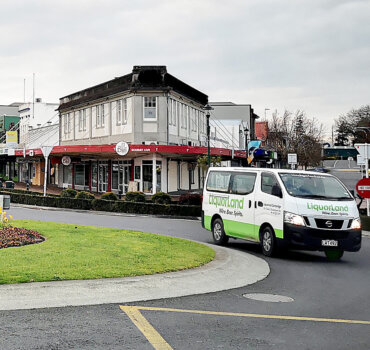
Liquor deliveries are an essential service during lockdown.

Liquor deliveries are an essential service during lockdown.
Regulations around happy hour or cheese and biscuit type gatherings in retirement villages and rest homes are dealt with too “inconsistently”, says the man responsible for issuing Waipā liquor licenses.
In a report to the Waipā District Council monthly meeting on Tuesday, liquor licensing compliance manager Karl Tutty said the establishments were often confused as to whether they needed a licence to serve alcohol to residents.
“Each case may be different but even in cases where there are sales, some argue that this is an extension of their home,” he said.
“It is apparent across the country that retirement complexes range from unlicensed, to holders of club licences and on-licences.”
Waipā, as the district licensing authority, is required to make an annual report to the Alcohol Regulatory and Licensing Authority.
In calling for a review of the act, Tutty told the council the district licensing authority did not get a lot of feedback from hospitals and other agencies around what harm alcohol was playing in the community.
“The act is old and would benefit from quite a significant review in several areas.”
It hadn’t kept up with modern day practices, he said.
Tutty said from 1 July 2020 to 30 June 2021, of the 13 new licences issued, 11 were on-licences and the other two for an off and club licence.
No applications were refused.
“The number of applications that receive objections from members of the public or reporting agencies remain very small, but there is some evidence that objectors are becoming more organised.
“The use of social media to ‘rally support’ for objections is becoming more evident, but these often fail to materialise into formal objections or do not meet the Act’s criteria for objections,” Tutty said.
District licensing staff were surprised during the first lockdown last year that alcohol remained available in supermarkets and that government deemed off-licence premises to be ‘essential business’ offering contactless sale and delivery.
“This could have been very detrimental to the objectives of the act,” he said.
Easy availability of alcohol through remote sales, click and collect and home delivery raised questions on the robustness of controls on assessing age verification and intoxication, particularly when police were not monitoring as actively as usual.
“These options have been continued by many suppliers, so the availability of alcohol may have increased as people not willing or able to go to the store now have other options,” Tutty said.
Cr Clare St Pierre said she was concerned the local authority was not aware of the harm “being perpetrated through communities’ by excess alcohol use.
Waipā was putting pressure on but there were concerns about privacy and data sharing, she said.
Cambridge-based Peter Carr, the president of the Retirement Villages Residents Association, agreed the Sale of Liquor Act needed reviewing.
The village he lives in recently applied for a licence across the whole facility.
A retirement village that wants to allow the sale of alcohol must be licensed in some way under the act by either applying for a special licence, an on-licence or incorporating a club or society.
“The whole damn system is too ponderous.
“I’m 80 years of age. I don’t need a bureaucrat in the local body telling me when I should be able to buy a wine or a whiskey,” he said.








